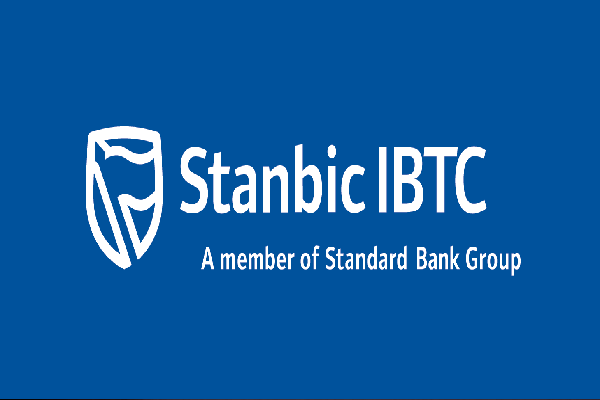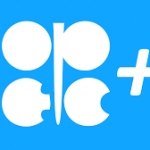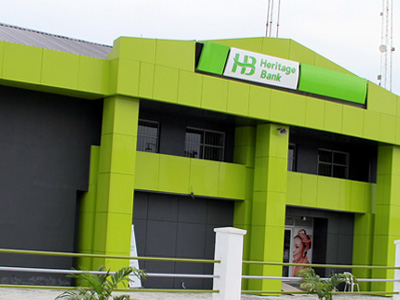
Stanbic IBTC Bank, on Friday presented its unaudited financials for the first quarter ended March 31, 2018, showing that profit after tax rose 43.5%, faster than the 22.04% in gross earnings for the period. This was helped by a loan loss write-back of N5.114bn, which wiped off the negative impact of the 34.11% growth in interest expenses and 46.81% operating expenses growth.
According to the result, gross earnings income climbed N10.367bn from N47.022bn to N57.389bn; boosted by net interest income of N18.851bn, which flat, compared to previous first quarter’s N18.88bn; as interest income notched N2.687bn or 10.01% to N29.528bn, up from N26.841bn, helped by the N15.234bn from interest on customer loans and advances from N13.555bn; and the N13.349bn from interest on investments, compared to N12.873bn.; Interest expense rose N2.716bn from N7.961bn to N10.677bn, of which N6.898bn came from term deposits, compared to N4.528bn.
Non-interest revenue jumped N7.626bn or 37.92% from N20.106bn in the prior first quarter to N27.732bn, with fee and commission income at N4.707bn or 35.47% from N13.194bn to N17.847bn; and expense of N129m, as against the previous N75m; following which net fee and commission revenue grew to N17.847bn, compared to N13.194bn, boosted by the N10.264bn from asset management fees, up from N7.618bn, helped by growth in assets under management.
Trading revenue jumped to N9.562bn from N6.651bn, representing a rise of N2.911bn or 34.76%, driven by the N5.434bn from fixed income trading, from N3.12bn; and the N3.777bn from foreign exchange trading from N3.438bn. The growth in forex revenue, the bank noted, “is on the back of foreign exchange margins from plain vanilla forward transactions and non-derivative forward trades.
Other revenue improved to N323m from N261m. Total income climbed to N46.583bn from N38.986bn, an increase by N7.576bn or 19.43%, the lion’s share of which was N23.958bn from the corporate and investment banking segment; as against the N19.167bn reported in the prior Q1; followed by N12.038bn contributed by the wealth segment, from N8.766bn in 2017; and N11.928bn contributed by the personal & business banking segment.
Impairment write-back stood at N5.114bn, compared to charges of N3.327bn in the corresponding period of 2017. The bulk of the write-back was the N3.72bn from corporate & investment banking segment, as against charge of N1.818bn; while N1.368bn came from personal & business banking, from a charge of N1.509bn in 2017. More specifically, the bank explained that N3.955bn of the loan loss write-back represented portfolio credit impairment reversal, as against an impairment of N1.892bn previously; while N1.398bn came from recoveries on loans and advances previously written off, up from N602m.
The write-back resulted in an income after credit impairment charges of N51.697bn, up from N35.659bn.
Operating expenses rose to N25.007bn from N17.033bn, representing a N7.974bn or 46.81% growth; comprising other operating expenses of N14.732bn, up from N9.799bn; lifted by the N3.361bn Asset Management Company of Nigeria (AMCON) expenses, which rose from N1.262bn; and N2.604bn “other expenses,” which climbed from N1.082bn, representing pension administration expenses, donations, miscellaneous expenses and provision for impairment of other assets. Staff costs increased to N10.275bn, up from N7.234bn.
Profit before tax therefore rose to N26.69bn from N18.626bn; while income tax expense of N3.623bn, from N2.552bn in 2017, left profit after tax at N23.067bn, up by N6.993bn or 43.5% from N16.074bn. Corporate & investment banking remained the most profitable segment for the period, accounting for N15.094bn of profit for the period, from N10.914bn; followed by the wealth group with N5.978bn, which was slightly better than previous N4.377bn; while personal & business banking could only contribute N1.995bn, which was however significantly better than N783m reported for prior Q1. The net profit translated to Earnings Per Share of N2.23, as against the N1.55 in 2017.
A negative other comprehensive income for the period net of tax of N2.201bn, resulted in total comprehensive income for the period of N20.866bn, as against the prior first quarter’s N16.925bn.
Total assets for the period rose to N1.405tr from N1.386tr, after customer loans and advances dropped to N337.969bn, from N372.088bn; while total liabilities was flat at N1.209tr, compared to N1.201tr in prior Q1; with customer deposits managing to rise from N753.642bn to N777.669bn; while provisions dropped marginally from N12.979bn to N12.439bn. Shareholders’ funds rose to N195.955bn from N184.218bn.















